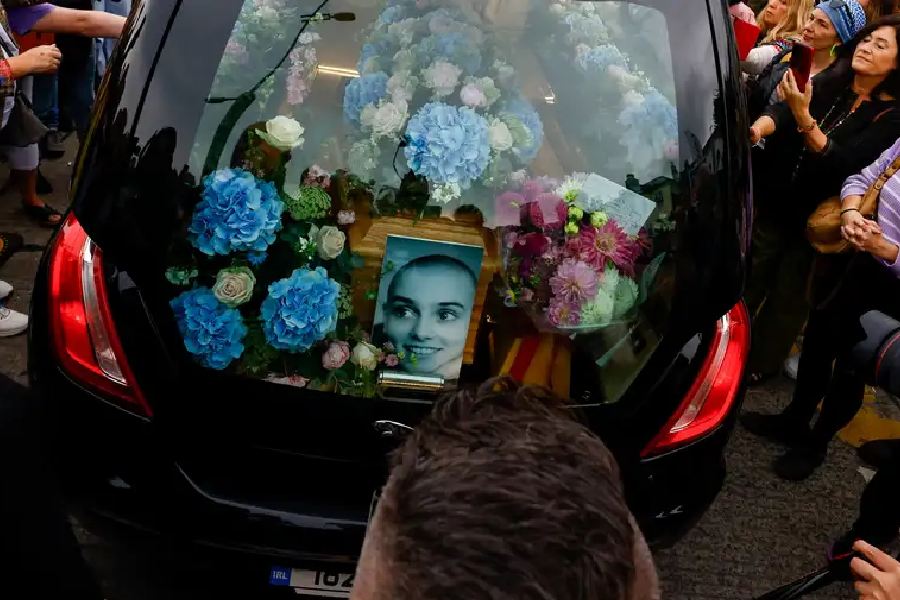At the close of a life poised between tradition and rebellion, Ireland gave Sinéad O’Connor a send-off on Tuesday that embraced both.
In keeping with an old Irish custom, her coffin was first carried past her last family home in Ireland, in Bray, County Wicklow.
But many of those who gathered, or who left her tributes, brought a spirit more in keeping with her life as a rebel who took on the establishment — most notably the Roman Catholic Church — and who spoke up for the oppressed. Among the signs left in front of her family home was one that read “BLACK LIVES MATTER,” “GAY PRIDE” and “REFUGEES WELCOME”.
At noon, the cortege reached O’Connor’s former home on Bray’s seaside promenade. The crowd broke into prolonged applause, with some raising fists in salute. Many were in tears. Earlier, as thousands of people waited for her cortege to pass alongside the small town’s seaside promenade, a classic Volkswagen van draped in rainbow and Rastafarian flags had played a selection of her music from speakers. The playlist mixed her rock and pop hits with her renditions of Irish traditional ballads, including The Foggy Dew.
O’Connor, who was found dead in her London apartment last month, converted to Islam in 2018, and her family will give her a Muslim burial on Tuesday. While the family wished to keep the funeral private, they invited the public to come to Bray for a last farewell.
Some of those lining the streets — suddenly sunny after days of grey skies — were avid music fans. Others were activists, and there were also abuse survivors who had drawn strength from O’Connor’s openness about her own experience of childhood trauma. Dave Sharp, who said he had spent years in care homes and been the victim of abuse, travelled to Bray from Glasgow on Monday.
New York Times News Service











